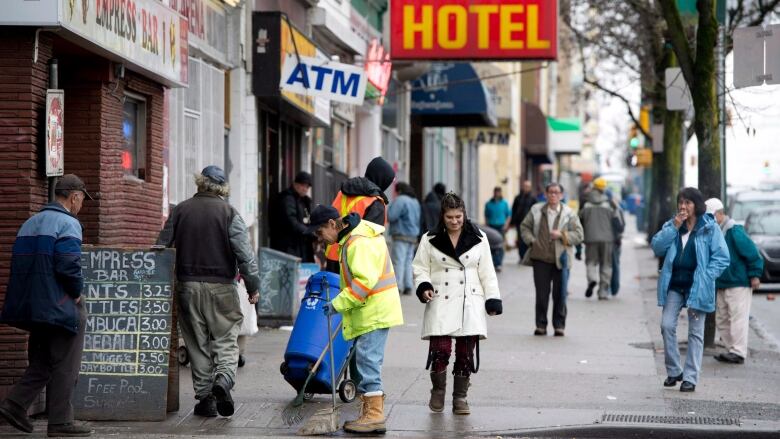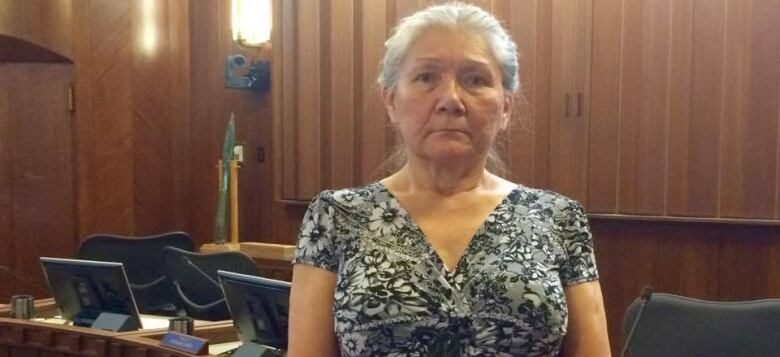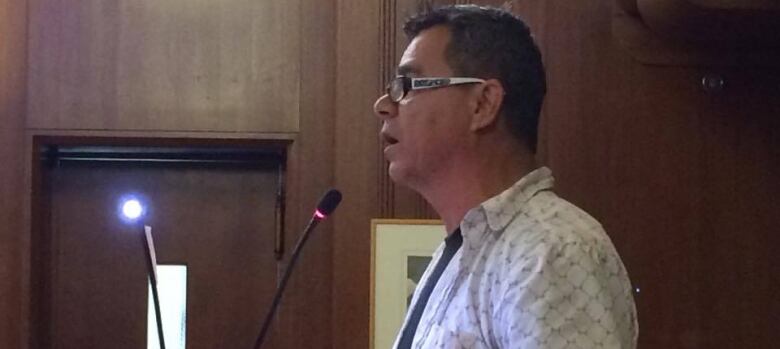Vancouver endorses innovative strategy for at-risk and Indigenous youth
Advocates demand improved and extended services for youth aging out of care

The great aunt of Paige Gauchier says she misses her niece's laughter the most.
More than three years after the 19-year-old overdosed in a public washroom near Vancouver's Oppenheimer Park, Deborah Page is advocating for improved services for Indigenous youth aging out of foster care in B.C.services that she says could have saved her niece's life.
- Paige's story: Death of troubled teen prompts action from B.C. government
- Paige's tragic story hits close to home for Aboriginal mother in Vancouver

On Wednesday, Vancouver City Council voted unanimously to support the work of Youth Matters, a coalition of agencies aimed at addressing service gaps faced by the disproportionate number of Indigenous youth in government care and all vulnerable families in the Downtown Eastside.
Page travelled by bus from her reserve in northern B.C. to be there for the decision.
"I felt that the family had to speak on behalf of Paige, and that they had to hear our story as a family," she said, adding that she believes the suicide of Paige's grandmother contributed to her downward spiral.
Complex problems, complex solutions
Page told the council her niece was the victim of poverty, homelessness and multi-generational trauma stemming back to her great-grandmother being taken away to residential school.

Mary Clare Zak, Vancouver's managing director of social policy, says endorsing the guiding principles of Youth Matters is related to the city's ongoing commitments to last year's report from B.C's representative for children and youth entitled,Paige's Story: Abuse, Indifference and a Young Life Discarded.
In the report,child advocate Mary Ellen Turpel-Lafond called upon the provincial government to immediately improve services to prevent another story like Paige's.
"What we're looking to do is have the willingness to work across different disciplines and different organizations and really keep the child and family at the centre of the story. So if we can get all of us lined up and working in that way, it will make a difference," said Zak.
Moral and economical
The City of Vancouver is also pushing the B.C. government to extend foster-care support services to the age of 24. A recent report suggests that's not only the moral thing to do, but the best economic decision as well.
Opportunities in Transition: An Economic Analysis of Investing in Youth Aging out of Foster Careestimates that supporting youth aged 19 to 24 with $1,375 a month would cost B.C. approximately $57 million annually.
But the adverse outcomes of youth "aging out" so abruptly at 19 such as lower education rates, greater involvement in the criminal justice system, substance abuse and others costs between $222 and $268 million annually.
"We seem to be living in a society where there's a quick-fix remedy. We need to take a long view," said ClareZak.
"We have to try a new way. And we know that."
Changing systems

Clark says the Our Place model integrates access to health care for vulnerable families through community clinics, local schools and social services in the inner city who work to engage citizens by removing barriers and promoting people-centered service delivery and economic involvement.
"Getting the city to adopt this now helps us go to all the municipal institutions to start working with us on the community level to make the systems changes we all know we need to do," he said.
"We're calling for things that all different levels of government are not used to. But now we've got commitments on the civic level to make that a reality. So that's the turning pointto get to the point where we can really see change happen for all vulnerable families here in Vancouver."












_(720p).jpg)


 OFFICIAL HD MUSIC VIDEO.jpg)
.jpg)



























































































